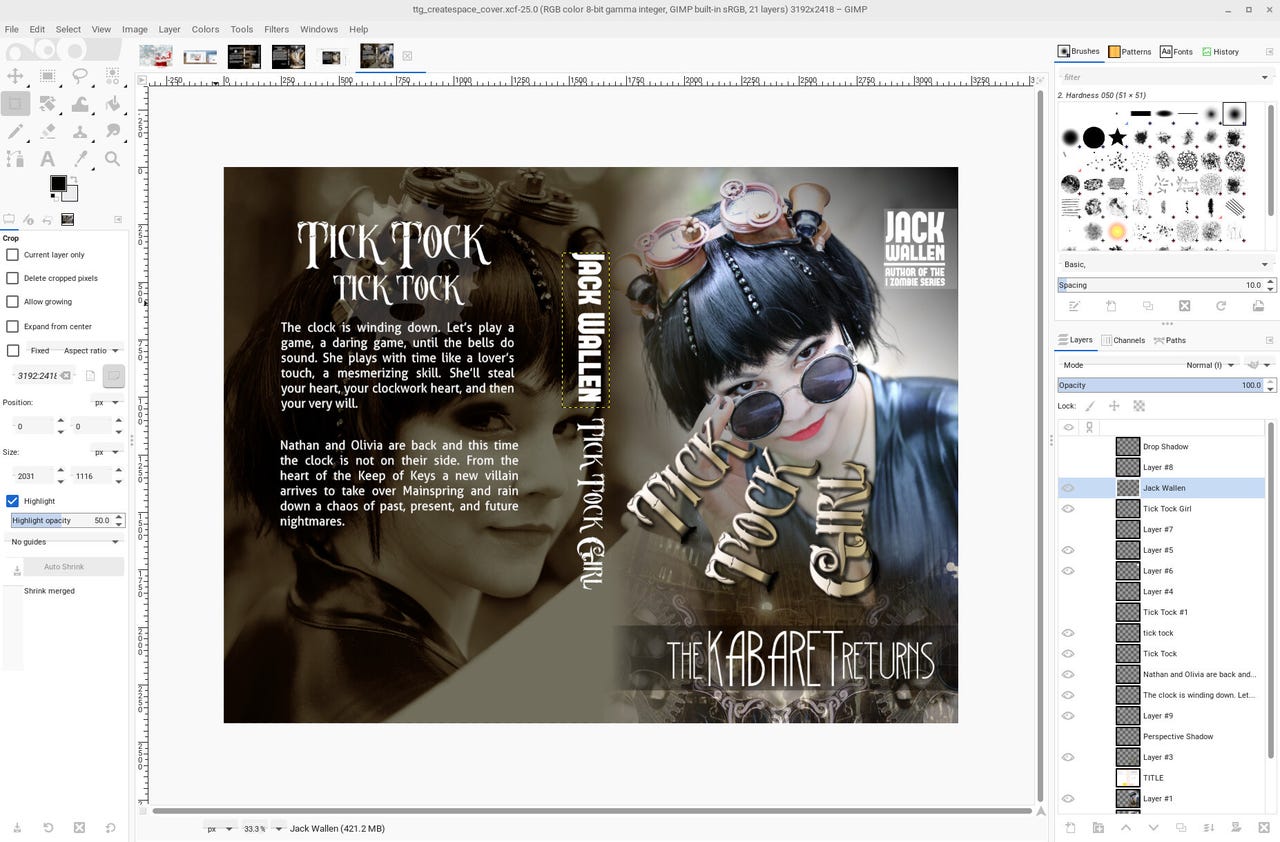
I’ve been using GIMP for decades to do everything from editing screenshots to creating complex book covers, website banners, and so much more. I use GIMP every day. Without GIMP, I’d have to turn to the likes of Photoshop, which doesn’t really run on Linux.
To me, GIMP is a must-have.
Also: How to use Image Creator from Microsoft Designer
The only complaint I have with GIMP is that evolution is glacial. Currently, I’m using version 2.10.34. Version 2.0 was first released on March 23, 2004.
We’ve been using the 2.x release for twenty years!
That all changes sometime this spring, when the team behind GIMP plans to release the first 3.x version of the software and they have some really exciting things to offer. These features have been highlighted in a number of publications (you can also view the official GIMP roadmap) but now that we’re getting nearer to the Libre Graphics Meeting (held in Rennes, France from May 9 to May 12), it’s time to get excited.
Here are the three new GIMP features I’m most excited about.
1. Non-destructive editing
This is big and has been one of the most requested features for a long time. Non-destructive editing is exactly what it sounds like…the ability to make changes (such as apply filter effects), without permanently changing the original image. This means users will no longer have to depend on Ctrl-Z to back out of alterations they’ve made. Even better, non-destructive editing doesn’t remove data from an image, so the quality doesn’t degrade when you make edits.
This means you’ll have more flexibility when making edits and you’ll even be less hesitant to make bold changes (because you can always revert back).
Also: My favorite keyboard shortcut of all time (and it works on every browser)
You might be thinking, “Ctrl-Z! Ctrl-Z!” Let me tell you why Undo isn’t always your friend. A few times over the years, I’ve dug into an image and made several changes, only to realize I needed to back out of those changes. I’d hit Ctrl-Z and find out the history didn’t go back far enough. Without a backup copy of the image (prior to those changes), I was faced with a lot of work on my hands.
Thanks to non-destructive editing, that shouldn’t be an issue.
2. Font handling
Every once in a while, I’ll run into an issue when using a non-traditional (read: artistic) font. Sometimes the font might not render without artifacts or bitmapping. That’s fine unless you’re working on a book cover or marketing material for a client and you need everything to look smooth and professional.
With GIMP 3, the developers gave font handling a considerable overhaul such that users will now be able to not only work with identically-named fonts (without problems) but also have fewer problems with custom and unique fonts.
3. New layer features
I use layers a lot (especially when creating book covers) and there are two issues I regularly run into: layer dimension adjustments and alignment. Fortunately, with GIMP 3, there’ll be auto-expanding layers, which means GIMP will automatically adjust layer dimensions according to the latest changes. This, in conjunction with the new snapping option that can more precisely align layers, will make dealing with layers considerably easier.
Also: How to use Layers in the GIMP image editor (and why you should)
These three features alone have me anxiously awaiting the official release of GIMP 3. Of course, if you’re brave enough, you can always install the current development version and test the features out for yourself. I, for one, have to wait until the official release, because I depend on GIMP for my workflow and can’t use a development or daily build for image creation/editing. But you can be sure that I’ll have GIMP 3.0 installed as soon as it’s released.



